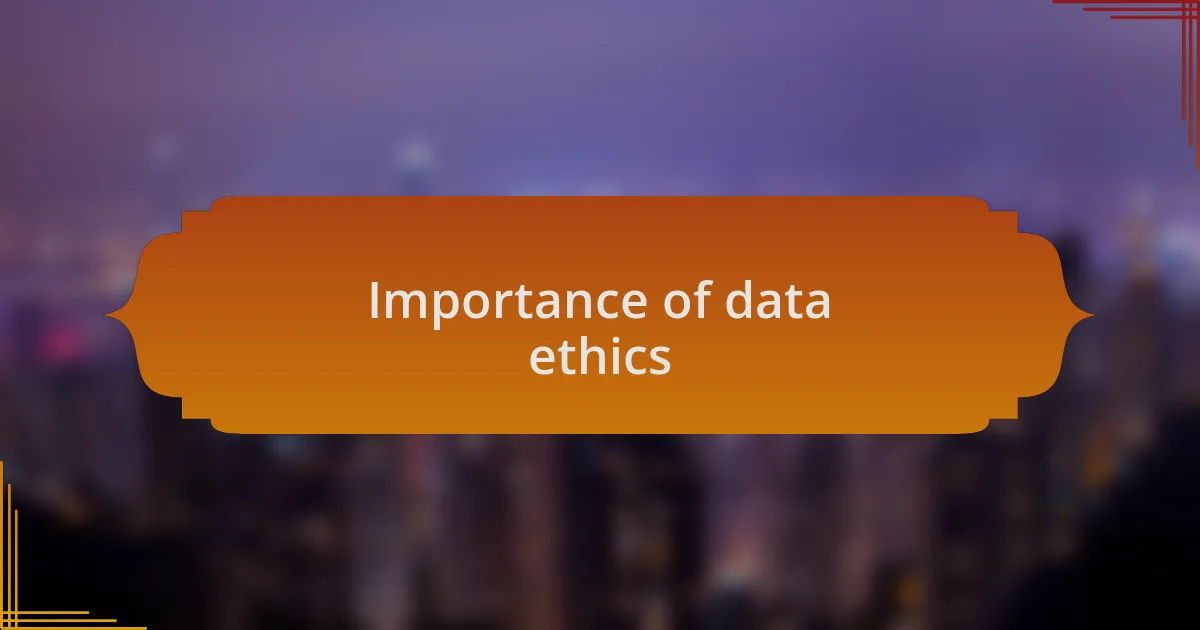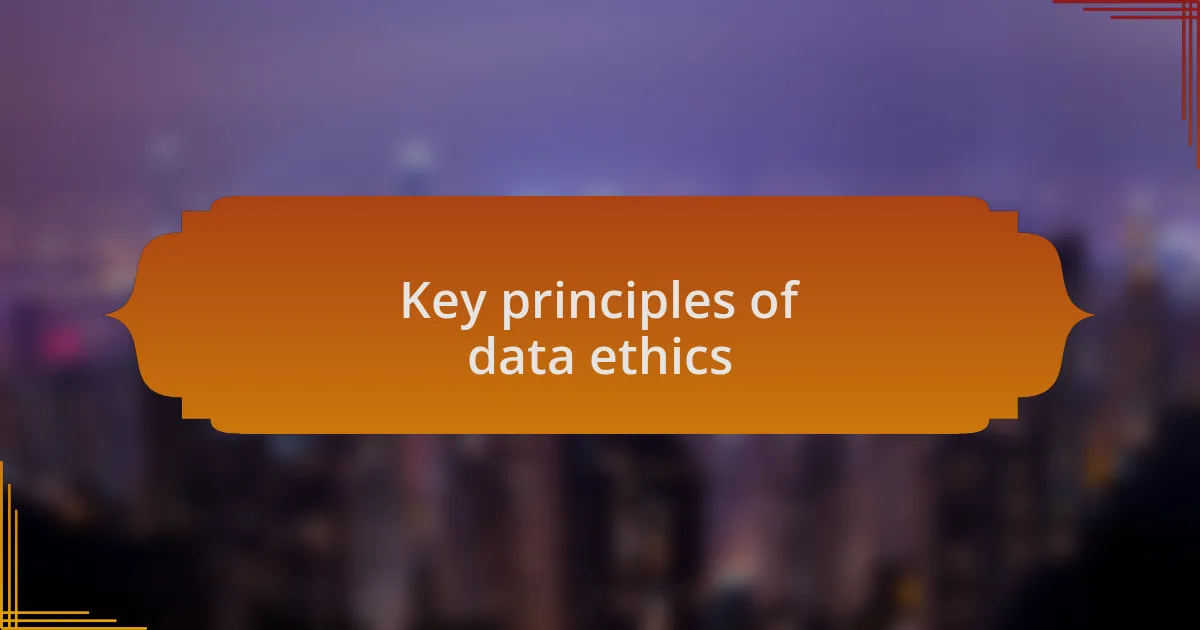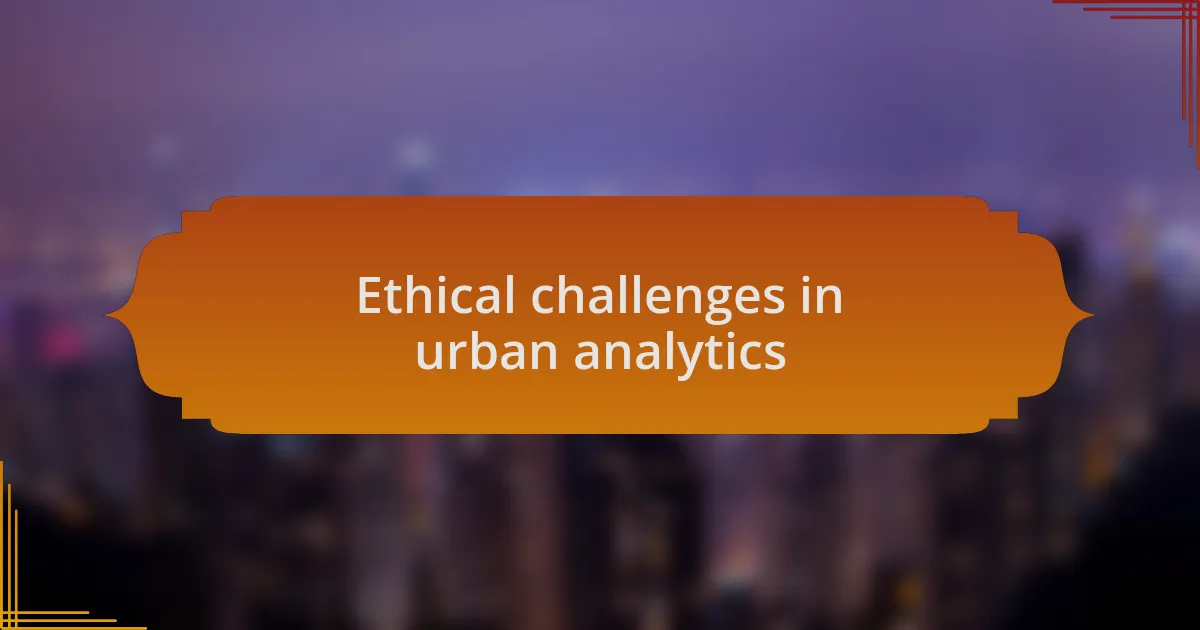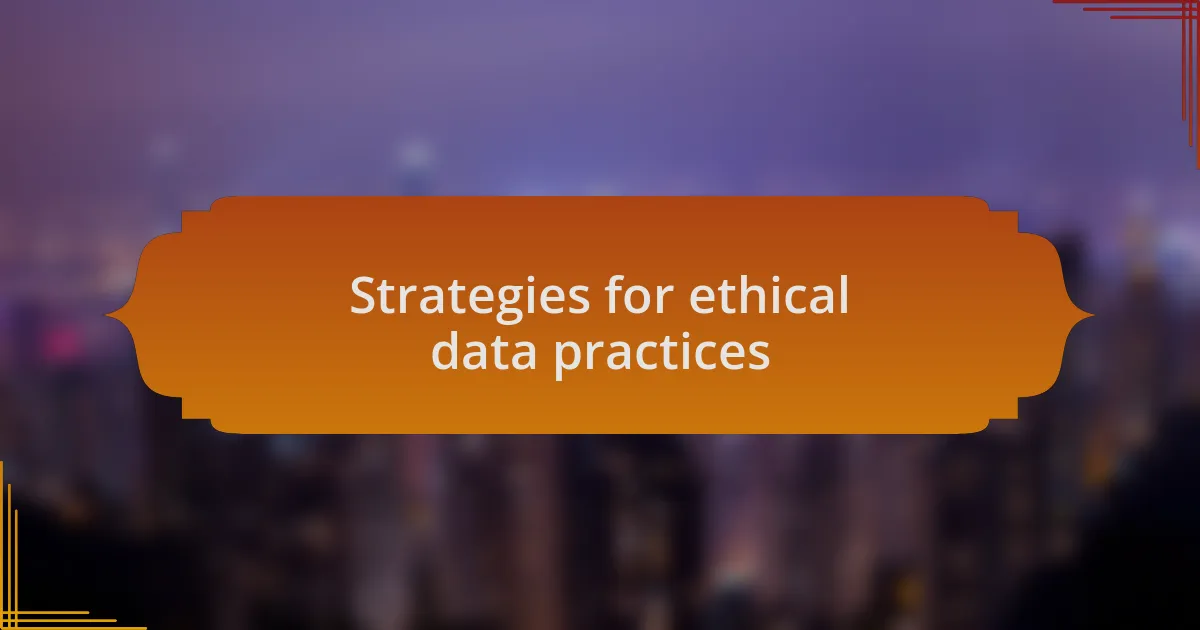Key takeaways:
- Urban telematics networks use data to enhance transportation and city efficiency, showing the potential for technology to transform urban living.
- Data ethics emphasizes the importance of transparency, accountability, and consent, ensuring fair and respectful treatment of community data.
- Challenges in urban analytics include data privacy, bias in data collection, and the complexities of data ownership, necessitating inclusive practices.
- Strategies for ethical data practices involve establishing clear consent protocols, building diverse data teams, and conducting regular ethics audits.

Understanding urban telematics network
Urban telematics networks represent a vibrant intersection of technology and urban living. When I first delved into this field, I was struck by how these systems harness data to improve transportation, reduce congestion, and enhance overall city efficiency. Have you ever found yourself stuck in traffic, wondering if there was a better way? That’s where urban telematics comes in, offering real-time analytics that can help inform city planning and traffic management.
The implementation of sensors and data analytics in urban settings creates a dynamic framework for understanding mobility patterns. I recall attending a conference where experts shared fascinating case studies on how cities were using this technology to not only shape infrastructure but also to enhance the citizen experience. It made me realize that every data point collected has the potential to transform urban life in ways we may not even fully grasp yet.
Moreover, the diversity of data collected—ranging from traffic flow to public transport usage—fuels innovation across various sectors. I often think about how interconnected our urban environments have become and how that connectivity can lead to more sustainable practices. Isn’t it exhilarating to consider the possibilities of bettering our cities through technology? The journey into urban telematics is not just academic; it is a deeply personal exploration of how we can shape a smarter, more connected future.

Importance of data ethics
Data ethics plays a pivotal role in guiding how we handle information in urban analytics. I remember a project where we analyzed traffic data and realized that the way we collected and used that information could impact real lives. It drove home the importance of ensuring that the data wasn’t just efficient but also fair and respectful to those it represented.
In my experience, ethical data practices can prevent misuse and build trust with communities. When I spoke to residents about their concerns over data privacy, their relief was palpable when they learned about our commitment to ethical standards. They want to feel like their information is protected, not just utilized for city improvements.
It’s also crucial to consider the implications of bias in data collection and analysis. I recall analyzing datasets that, if not carefully managed, reflected historic inequalities in urban planning. It raised a critical question for me: How do we ensure that data serves everyone equitably? Addressing this challenge requires a concerted effort to standardize ethical guidelines across the board.

Key principles of data ethics
One of the key principles of data ethics is transparency. In a project I participated in, we made it a priority to communicate clearly about how we were collecting and using data. I saw firsthand how this openness fostered dialogue with community members, allowing them to feel more involved and informed. Isn’t it fascinating how transparency can transform skepticism into trust?
Another vital principle is accountability. During an analysis of public transportation data, I encountered issues with data accuracy that could have skewed our findings. It was essential for our team to own up to those errors and correct them openly. I believe that taking responsibility not only enhances the integrity of our work but also reinforces the idea that data should serve the public, not manipulate it.
Lastly, consent is fundamental. When engaging with residents for a neighborhood study, I made sure that they understood precisely what their involvement entailed. This proactive approach fostered a culture of respecting choices and autonomy. I often wonder, how differently would data projects turn out if everyone prioritized this principle? It’s a reminder to always place individual rights at the forefront of our analytics initiatives.

Ethical challenges in urban analytics
When I dove into urban analytics, I quickly realized that one major ethical challenge is data privacy. Working on urban mobility patterns, I frequently found myself grappling with how to anonymize individual data without losing its richness. It made me think: how much of our personal lives are we willing to share in the name of progress? The more I explored, the clearer it became that balancing innovation with privacy isn’t just a technical issue; it’s a deeply human concern.
Another ethical pitfall I’ve encountered is bias in data collection. While analyzing demographic data for city planning, I observed how certain communities were underrepresented, skewing our results. This made me reflect on how vital it is to strive for inclusivity. Can’t a data-driven approach also empower marginalized voices? As I pushed for more comprehensive data sources, it became apparent that addressing bias is essential for ensuring that urban analytics serve all city residents fairly.
Moreover, the challenge of data ownership looms large. In my experience facilitating discussions among stakeholders, I often found conflicting interests about who controls the data. It’s intriguing to think how many organizations view data as an asset rather than a collective resource. Shouldn’t we be treating it as a shared responsibility, considering it involves the lives of the very people we aim to serve? This awareness added layers to my work, pushing me to advocate for equitable data practices.

Strategies for ethical data practices
To cultivate ethical data practices, I’ve found establishing clear consent protocols to be essential. When I started involving community members in the data collection process, I realized the importance of transparency. It isn’t just about asking for permission; it’s about making them feel valued and informed. Imagine the trust that can grow when individuals know how their data will be used and can voice concerns upfront.
Building diverse data teams has also proven invaluable in my journey. One instance was when I worked with a group that lacked representation from lower-income neighborhoods. Bringing in voices from those areas not only enriched our discussions but also highlighted crucial data points we originally overlooked. How can we claim to understand urban issues without genuinely reflecting the communities affected? This approach ensures that we’re diligent about addressing biases and fostering a sense of shared ownership over the data narratives we create.
Lastly, I believe that implementing regular ethics audits can be a game-changer in monitoring our practices. During one of these audits, I discovered how certain datasets were inadvertently failing to protect privacy, sparking a redesign of our data handling procedures. Isn’t it essential, then, to critically assess our methodologies consistently to uphold our ethical commitments? It’s a proactive way to stay accountable and to ensure that our work aligns with our values, ultimately benefiting everyone in our urban spaces.